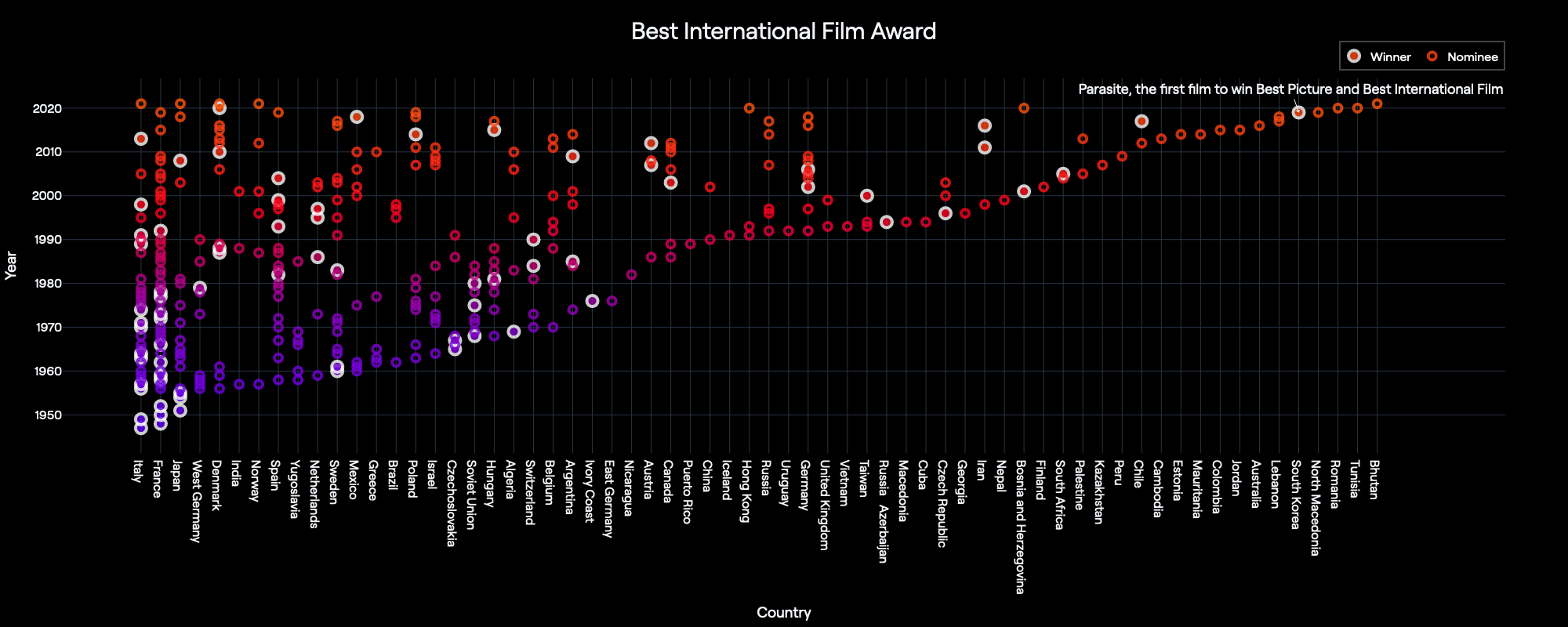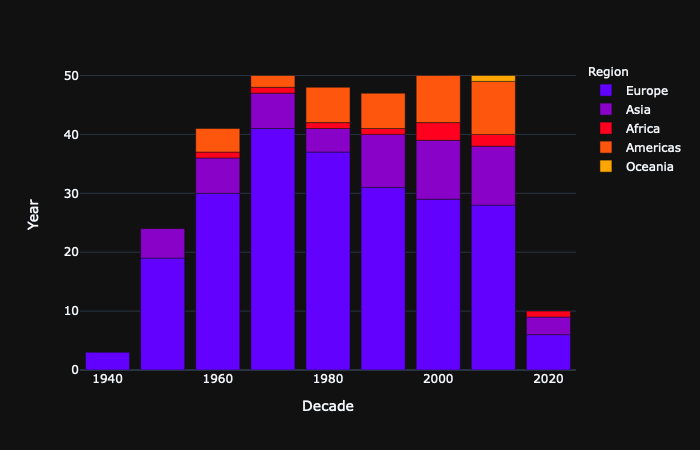Visual History of Oscar International Films


Below are all of the movies nominated for the Best International Film award at the Oscars. Traditional powerhouses of cinema in Europe, Asia, and North America have had consistent success in the category from the very beginning. Recently there have been shifts to recognize contributions of many more regions, leading to a much broader range nominees over the past 20 years. For instance in 2022 Bhutan was nominated for the first time for the film Lunana: A Yak in the Classroom.
Parasite was the first film ever nominated from South Korea and the first to win both Best Picture and Best International Film. It represents the greater variety of nations, languages, and stories nominated, along with growing appreciation of the category by the entire academy.

Europe still makes a majority of films nominated in the category, but there has been a significant shift towards films from Africa, Asia, and the Americas since the 90s.

Let's take a closer look at two regions that have most powerfully shaped international film over the past century, particularly at the Oscars.

The very first best international film award went to Shoe-Shine by the legendary Italian filmmaker Vittorio De Sica. Italian film has continued to be recognized (with a 2022 nomination for Hand of God) only to be outperformed by the home of the Lumiere brothers: France. These two nations alone have 70 nominations and 26 wins (14 to Italy, 12 to France.) About half of those wins came from the first twenty years of the category, when Italy and France both won 7 awards. In the past 20 years Italy has picked up one win, and France none at all.
The strength and depth of Europe’s film industry has spread farther North and East now, with nations like Poland, Hungary, Sweden and Denmark (which won in 2021 for Another Round) getting consistent nominations and wins in the last decade.

Asia has been the second most nominated region for the international category and has been since the beginning of the category, due primarily to the contributions of Japan’s postwar cinematic golden age. In the 1950s and 60s Japan produced all but one of the nominated films from Asia. That Japanese foundation has led to Asia being a sprawling and successful region for Oscar films — in the 90s and beyond films from the Middle East and Central Asia have increasingly represented the continent. The 2010's had two films made in Iran win the award.
It seems in recent years the recognition of Asian film has moved East once again with South Korea's first nomination and win with Bong Joon-Ho's Parasite and this year’s nominee (and winner of best adapted screenplay) Hamaguchi Drive My Car.
The past 75 years in which the Oscars have nominated the best film not in the English language have shaped the canon of what we understand international films to be. From the early success of France, Italy, and Japan to the much wider film landscape of today that includes Scandinavia, Iran, South Korea along with Central and South America and now Africa, the perspectives and stories of the entire world have been celebrated.
Filmmaking continues to expand as the world contracts, and there are many many more stories to tell and recognize. The vast majority of African nations; many countries in Southeastern, Central, and Western Asia; Pacific Islands; much of the former Soviet Union; along with a few nations in Central and South America have yet to be nominated. It will surely benefit the film industry, the Academy, and the movie-loving world if that untapped list continues to shrink in the coming decades.
Share this Post
Build new levels of engagement and connection with your viewers - get in touch to find out more about Lumiere and our insights solutions.